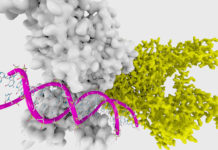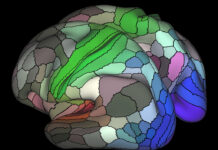Large Study Finds Epigenetic Changes Associated with Trauma Explained by Smoking
A new study suggests that epigenetic changes that have been associated with trauma may actually be due to environmental toxins.
New Study Raises Doubts About fMRI Neuroimaging Research
More than forty thousand papers have been published using functional magnetic resonance imaging (fMRI) technology to explore the brain. A new analysis of the common...
The Trouble with Twin Studies
As most readers are aware, it is widely believed that both within and without of psychiatry genetic factors play an important role in causing major psychiatric disorders such as schizophrenia, bipolar disorder, major depression, ADHD, autism, anxiety, and even post-traumatic stress disorder (PTSD). Twin studies provide the main pillar of support for this belief which is often, though mistakenly, presented as a scientific fact.
Genetics of Bipolar Disorder
Research from the Semel Institute for Neuroscience and Human Behavior at USC finds that "The standard concept of genetic testing includes at least three...
Quotations From the Genetics “Graveyard”: Nearly Half a Century of False Positive Gene Discovery...
In a 1992 essay, British psychiatric genetic researcher Michael Owen wondered whether schizophrenia molecular genetic research would become the “graveyard of molecular geneticists.”1 Owen predicted that if major schizophrenia genes existed, they would be found within five years of that date. He was optimistic, believing that “talk of graveyards is premature.”2 Owen now believes that genes for schizophrenia and other disorders have been found, and was subsequently knighted for his work. Despite massively improved technology, however, decades of molecular genetic gene finding attempts have failed to provide consistently replicated evidence of specific genes that play a role in causing the major psychiatric disorders.
“Bewitching Science” Revisited: Tales of Reunited Twins and the Genetics of Behavior
In this article I will attempt to debunk one of the great “scientific” smoke and mirrors shows of the past half century—the claim that stories of reunited separated MZ (monozygotic, identical) twin pairs indicate that heredity plays a major role in causing human behavioral differences. These stories, which are often used to sell the false ideology of genetic determinism, have entered the public imagination in a way that academic research results never could. Here I will show that these stories provide no evidence whatsoever that (as yet undiscovered) “genes for behavior” influence human behavioral development.
Disease Theory of ‘Mental Illness’ Tied To Pessimism About Recovery
Researchers recently completed a first of its kind, large-scale international survey of attitudes about mental health and they were surprised by the results. According to their analysis published in this month’s issue of the Journal of Affective Disorders, people in developed countries, like the United States, are more likely to assume that ‘mental illnesses’ are similar to physical illnesses and biological or genetic in origin, but they are also much less likely to think that individuals can overcome these challenges and recover
The Genetics of Depression: “Look to the Environment”
A comprehensive review of research on the genetics of depression up to 2012, published online today by Psychological Bulletin, finds "a continued lack of...
A Blood Test for Schizophrenia with 83% Accuracy?
An NBC online News article dated October 15, 2010, carried the noteworthy title New blood test may help detect schizophrenia. The article was written by Natasha Allen, a freelance medical journalist. The gist of the article is that there is a new blood test called VeriPsych which "researchers say" is 83% accurate in discriminating people who are "schizophrenic" from people who are not.
Genetic Research in Psychiatry: A Brief Update
If molecular genetic research had actually delivered the genes for psychiatric disorders promised by mainstream psychiatry and its subfield of psychiatric genetics, twin research today would be largely obsolete because focus would have shifted to molecular genetic research, and a person’s genotype and diagnosis would be determined directly from his or her DNA. Twin research, therefore, retains its current level of importance in psychiatry only because the genes believed to exist for its disorders, based largely on genetic interpretations of twin studies, have not been found.
The Genetics of Schizophrenia: A Left Brain Theory about a Right Brain Deficit in...
In recent months, two teams of researchers in the UK and the US published complementary findings about the epigenetic origins of schizophrenia that have scientific communities who indulge in ‘genetic conspiracy theories’ abuzz. While these results are intriguing, and no doubt involve pathbreaking research methodologies, this line of thought represents a decontextualized understanding both of the symptoms that are typically associated with schizophrenia, and their causes.
Why Precision Psychiatry is Not a Paradigm Shift
A letter just published in JAMA Psychiatry suggests that “precision psychiatry” is not the paradigm shift it’s purported to be by the psychiatric establishment.
Child Abuse/Psychosis Link Not Genetic
Although psychosis is more common in the parents of people with psychosis than those without, the difference cannot be attributed to genetics, research from...
Schizophrenia and Genetics: A Closer Look at the Evidence
“The substantial hereditary component in schizophrenia,” a pair of researchers wrote in 1993, “is surely one of the two or three best-established facts in psychiatry.” But is it really? For mainstream psychiatry and psychiatric genetics, schizophrenia is “a severe mental disorder with a lifetime risk of about 1%, characterized by hallucinations, delusions and cognitive deficits, with heritability estimated at up to 80%,” or a “highly heritable neuropsychiatric disorder of complex genetic etiology.” Many commentators have challenged these claims, and some have challenged the concept of schizophrenia itself.
Researcher Urges Caution When Applying Genetics to Psychiatry
In a review editorial for the journal Psychotherapy and Psychosomatics, neurobiology researcher Steven Dubovsky from the University at Buffalo argues against the adoption of...
Brain Imaging Reveals Psychiatric Disorders are Not Neurological Disorders
Some researchers have been arguing to reclassify all psychiatric disorders as diseases of the brain and nervous system, similar to epilepsy or Parkinson's disease. Neuroimaging research, however, reveals that psychiatric disorders appear to be distinct from neurological disorders, according to a new study published in this month’s issue of the British Journal of Psychiatry.
A Critique of Genetic Research on Schizophrenia – Expensive Castles in the Air
In the light of the much trumpeted claims that recent research has identified genes for schizophrenia, it is important to review the track record of this type of endeavor. Despite thousands of studies costing millions of dollars, and endless predictions that the genetics of schizophrenia would shortly be revealed, the field has so far failed to identify any genes that substantially increase the risk of developing schizophrenia.
Large Rigorous Study Debunks Popular Gene-Environment Theory of Depression
A large and rigorous meta-analysis fails to find support for the gene-environment interaction theory of depression.
NIMH Funding Changes Threaten Psychotherapy Research
The National Institute of Mental Health (NIMH) is increasingly shifting its research emphasis toward attempting to uncover biomarkers for “mental diseases,” which may have dramatic consequences for research and training in clinical psychology. In an article to be published in next month’s Professional Psychology: Research and Practice, Marvin Goldfried outlines how the shift in funding priorities for psychological research is tied to the needs of pharmaceutical companies and the biological model in psychiatry.
Comments on Jeffrey Lieberman and Ogi Ogas’ Wall Street Journal Article on the Genetics...
The March 3rd, 2016 edition of the Wall Street Journal featured an article by past President of the American Psychiatric Association (APA) Jeffrey Lieberman and his colleague, computational neuroscientist Ogi Ogas. The article was entitled “Genetics and Mental Illness—Let’s Not Get Carried Away.” In their piece, the authors started by expressing the belief that a recent study identified a gene that causes schizophrenia, and then discussed whether it is desirable or possible to remove allegedly pathological genes in the interest of creating a future “mentally perfect society.” The authors of the article, like many previous textbook authors, seem unfamiliar with the questionable “evidence” put forward by psychiatry as proof that its disorders are “highly heritable” In fact, DSM-5 Task Force Chair David Kupfer admitted that “we’re still waiting” for the discovery of “biological and genetic markers” for psychiatric disorders.
Biology and Genetics are Irrelevant Once True Causes are Recognized
The psychiatric genetics literature contains few references to specific environmental factors that cause psychiatric disorders, and while researchers acknowledge a role for these factors, they usually claim that environmental causes are mysterious or unknown. As a leading group of psychiatric genetic researchers recently put it, while claiming that schizophrenia “has a substantial genetic contribution,” the “underlying causes and pathogenesis of the disorder remains unknown.” But research suggests otherwise.
Mental Health Professionals Critique the Biomedical Model of Psychological Problems
While a great deal of the excitement about advances in psychological treatments comes from the potential for research in neuroscience to unlock the secrets of the brain, many mental health experts would like to temper this enthusiasm. A special issue of the Behavior Therapist released this month calls into question the predominant conception of mental illnesses as brain disorders.
Effects of Stress Can Cross Generations
Researchers from the University of Cambridge have found, for the first time, that genes affected by stress during life can be passed to the...













